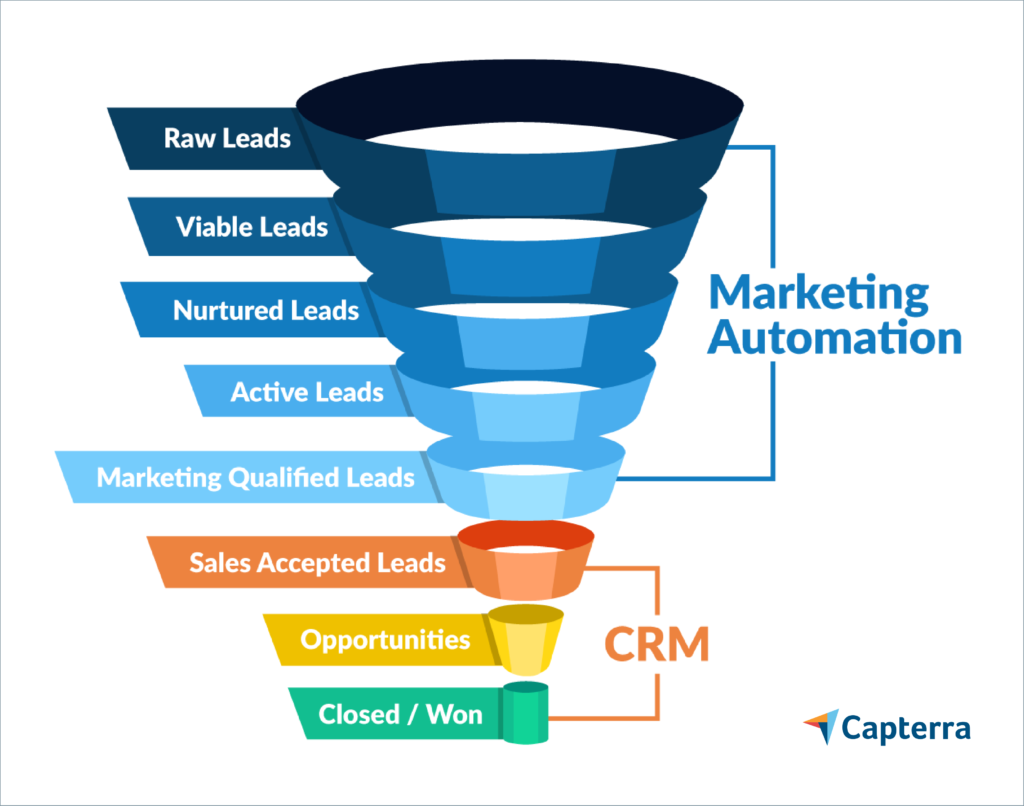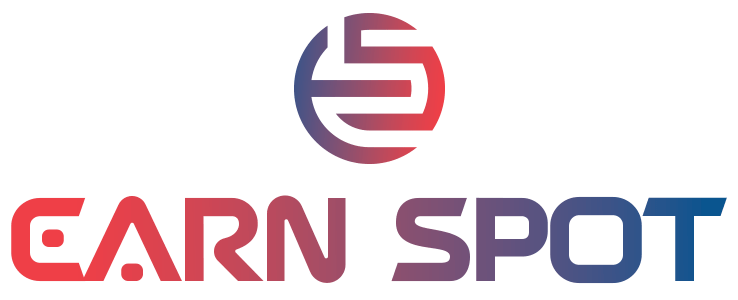Table of Contents
Today’s modern business landscape is characterized by hyper connectivity, which makes it essential for businesses to establish meaningful relationships with customers while efficiently managing their marketing efforts. This is where the fusion of Marketing Automation and Customer Relationship Management (CRM) comes in as a transformative force that can help businesses succeed.
What is Marketing Automation?
Marketing automation is a type of software that helps automate repetitive marketing tasks, such as email marketing, social media scheduling, and lead scoring. It enables your marketing team to focus on more important initiatives, such as creating targeted campaigns and analyzing data. By automating these tasks, your team can save time, be more efficient, and achieve better results.
What is CRM?
CRM software helps you manage and track customer interactions throughout their lifecycle. It stores customer data, provides insights into their behavior, and helps you build stronger relationships with them.
Combine Power of Marketing Automation and CRM
Marketing Automation CRM is a comprehensive system that merges the capabilities of Customer Relationship Management (CRM) with the efficiency of Marketing Automation tools. It’s a technological combination designed to simplify marketing efforts while fostering stronger, more personalized connections with customers. Integrating customer data from various touchpoints into a centralized platform, it empowers businesses to automate marketing tasks, manage leads through the sales funnel, and deliver tailored communications.
This system enables the creation and execution of targeted campaigns across multiple channels, leveraging insights derived from customer behavior and preferences. Through automation, it optimizes workflows, allowing marketing teams to focus on strategy and creativity while ensuring consistent and meaningful interactions with customers. Ultimately, Marketing Automation CRM activates enhanced customer engagement, improved conversion rates, and data-driven decision-making, laying a robust foundation for sustainable business growth and success.

Features of marketing automation CRM
1. Integrated Client Information Hub
An automated Marketing CRM system helps unify a customer database by gathering information from different sources and organizing it neatly in one place. Imagine people interacting with a company through various channels like the website, social media, or emails.
Each interaction holds valuable details about the customer—what they like, how often they visit, what they purchase, and more. Instead of manually collecting and storing this information, the automated system does it automatically.
It grabs data from these different interactions and neatly arranges it in a single, centralized database. This unified database then gives a complete picture of each customer, making it easier for the company to understand their needs, preferences, and history of interactions across different channels.
2. Lead Tracking and Scoring System
In automated Marketing CRM, lead management involves tracking potential customers’ activities and scoring their level of interest. This scoring helps prioritize leads for personalized communication and follow-ups. As leads interact more, their scores change, indicating their readiness for a purchase. This system guides sales efforts toward leads showing higher interest, boosting the likelihood of turning them into customers.
3. Customer Segmentation
Automation in Marketing CRM simplifies Customer Segmentation by analyzing customer data and grouping individuals based on similarities like their buying habits or interests. This automatic categorization allows businesses to create personalized marketing strategies for different groups, improving the relevance of their messages and offers for better engagement.
4. Data Analysis and Performance Evaluation
Automation in Marketing CRM simplifies data collection and analysis, generating instant reports on campaign performance and customer behavior. This streamlined process enables quick, data-driven decision-making to refine strategies and enhance future marketing efforts.
Boosting Business Efficiency with Marketing Automation CRM Solutions
Strengthened Customer Bonds
It helps businesses keep all customer information organized. With this, they can talk to each person in a way they like and understand. By doing this, companies make customers happier and become friends with them. This makes people want to keep coming back to buy things from that company.
Enhanced Prospective Client Handling and Conversion Metrics
The system keeps an eye on possible customers and gives them scores. This helps find the ones who might buy things. Then, it sends special messages and shows them things they like. Doing this makes it more likely they’ll become actual customers and buy from the company
Competitive Advantage
Using fancy tools to make things special for customers and sending them messages really helps a business stand out. When a company does more than expected for customers, it becomes different from all the other companies trying to sell similar things.
Scalability and Flexibility:
Automation in marketing CRM supports scalability and flexibility by adapting to the changing needs and growth of a company. As the business expands, this system can handle larger volumes of customer data and increased demands. It’s like having a tool that grows alongside the company, accommodating more customers, and handling more tasks efficiently. Moreover, this system is flexible—it can be adjusted or modified to fit new requirements or incorporate additional functionalities. Its adaptability allows the business to evolve without worrying about outgrowing its tools, ensuring that the CRM system remains an asset that aligns with the company’s growth trajectory and changing needs.
Is Marketing Automation CRM a Cost-Effective Choice?
Automation marketing and CRM can be very cost-effective for small businesses, especially when compared to the traditional methods of marketing and sales
Reduced labor costs: When you use technology to handle tasks like entering data, sending follow-up emails, or scoring leads, your team doesn’t have to spend as much time on these repetitive jobs. That means they can concentrate on more important things like creating exciting marketing plans or sealing deals. By doing this, you end up spending less money on paying employees to do routine tasks, which can help you save money over time.
Better customer service: CRM software helps you see everything about your customers in one place. This makes it easier to solve any problems they have faster. When you solve issues quickly, customers feel happier and more likely to stick with your business.
Scalability: So, as your company gets bigger, these systems can grow right along with it. You won’t need to find new ones because they’re built to handle more work as your business gets busier.
FAQs
What is marketing automation CRM ?
Marketing automation CRM combines software tools to streamline marketing efforts, automate repetitive tasks, and manage customer relationships efficiently from a single platform.
Is marketing automation and CRM right for my small business?
Marketing automation and CRM can streamline tasks, organize data, and boost customer interactions, making it beneficial for efficiency in a small business. Consider your needs, budget, and potential growth to determine if the investment aligns with your goals.
How much do marketing automation and CRM cost?
The cost of marketing automation and CRM tools varies widely, ranging from a few hundred to thousands of dollars monthly, depending on features, user numbers, and complexity. Some providers offer tiered plans or scalable pricing based on business size and needs.
Which are the Marketing Automation Platforms?

